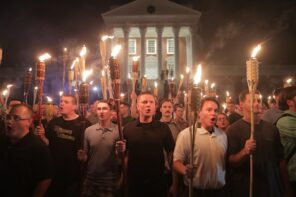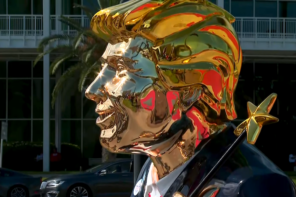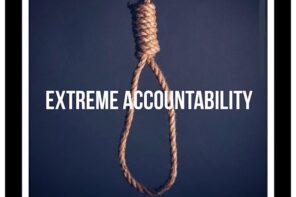Critical Race Theory (CRT), the academic study in which students and scholars examine how race and racism function, is under attack by conservatives who claim that CRT promotes a distorted view of American history through a racial and ideological lens. According to the Washington Post, conservative activists and politicians use the term as a “catchall phrase for nearly any examination of systemic racism in the present.” It’s often “portrayed as the basis of race-conscious policies, diversity trainings and education about racism, regardless of how much the academic concept actually affects those efforts.” But how did an academic theory, taught primarily to upper-division undergraduates and graduate students, about how racism has impacted the nation and world, become this iniquitous thing ‘ruining’ America?
In a recent essay in the New Yorker, writer Benjamin Wallace-Wells suggested that journalist and conservative activist Christopher Rufo invented the conflict we now have over CRT in the summer of 2020. The article traced Rufo’s own discovery of CRT from “leaks” he would receive from employees across the country enrolled in anti-bias or diversity training classes. From the material he received, he noticed that many documents cited books by authors such as Ibram X. Kendi and Robin DiAngelo. From there, Rufo started to read the footnotes in the books and noticed that much of their work “pointed to academic scholarship from the nineteen-nineties, by a group of legal scholars who referred to their work as critical race theory.”
According to the essay, it was then Rufo began to understand CRT as a “distinct ideology” with “radical roots.” As he would come to see it, conservatives needed “new language” to fight this radical ideology and he believed CRT would be the “perfect villain,” an “externally applied pejorative” because “it’s the label the critical race theorists chose themselves.”
After publishing articles on this newfound revelation, he soon found himself on “Tucker Carlson Tonight” where he issued a call to the Trump administration:
It’s absolutely astonishing how critical race theory has pervaded every aspect of the federal government. Conservatives need to wake up. This is an existential threat to the United States. And the bureaucracy, even under Trump, is being weaponized against core American values. And I’d like to make it explicit: The President and the White House—it’s within their authority to immediately issue an executive order to abolish critical-race-theory training from the federal government. And I call on the President to immediately issue this executive order—to stamp out this destructive, divisive, pseudoscientific ideology.
After his appearance on “Tucker,” he received a call the following day from Trump’s chief of staff, Mark Meadows, who invited him to come to Washington and assist in drafting the Executive Order that President Trump would issue on September 4, 2020. Reflecting on his work, Rufo remarked, “This entire movement came from nothing,” while Wallace-Wells gives all the credit to Rufo for causing the current ‘CRT controversy.’
However, the truth is that before Rufo “discovered” CRT from the footnotes of documents leaked to him by frustrated employees in anti-bias and diversity training classes, white evangelicals had already been laying the groundwork for the attack on CRT. For instance, the libertarian evangelical blog Truth and Liberty warned fellow evangelicals about CRT in Don’t Let Critical Race Theory Infiltrate the Church. The writer argued that CRT is not conducive to the gospel because of its “Marxist” orientation and its “flawed” definition of racism.
In his essay The Rise of Woker-Than-Thou Evangelicalism, conservative pastor and John MacArthur colleague, Phil Johnson laments how some evangelicals are getting on board with “doctrines borrowed from Black Liberation Theology, Critical Race Theory, Intersectional Feminism, and other ideologies that are currently stylish in the left-leaning secular academy.” He argues that in trying to make church “cool,” these leaders “strive for postmodern political correctness” and that “race must be an issue in practically every subject we deal with.” In contrast, he continues, “diversity, tolerance, inclusivity, and a host of other postmodern “virtues” have begun to edge out the actual fruit of the Spirit in the language and conversation of some of our wokest brethren.”
But it was John MacArthur’s repudiation of social justice in the infamous Statement on Social Justice and the Gospel (Dallas Statement) opened the floodgates for critiques on CRT. In Article 1 it reads:
We deny that Christian belief, character, or conduct can be dictated by any other authority, and we deny that the postmodern ideologies derived from intersectionality, radical feminism, and critical race theory are consistent with biblical teaching. We further deny that competency to teach on any biblical issue comes from any qualification for spiritual people other than clear understanding and simple communication of what is revealed in scripture.
At the 2019 gathering of the Southern Baptist Convention, in response to allegations that white evangelicals generally and Southern Baptists particularly were quiet on issues like systemic racism and police brutality, the messengers passed Resolution 9 titled “On Critical Race Theory and Intersectionality,” which read, in part:
That critical race theory and intersectionality should only be employed as analytical tools subordinate to Scripture—not as transcendent ideological frameworks; That Southern Baptists will carefully analyze how the information gleaned from these tools are employed to address social dynamics; and be it further RESOLVED, That Southern Baptist churches and institutions repudiate the misuse of insights gained from critical race theory, intersectionality, and any unbiblical ideologies that can emerge from their use when absolutized as a worldview.
The “denunciation” of CRT and Intersectionality in this statement, however, was too mild for many white evangelicals. For example, John MacArthur, who in the past has offered a theological rationale and support of slavery and enslavers, wrote that the “acceptance of Critical Race Theory and Intersectionality was a sign of “liberalism” taking over the SBC and called the approval of the resolution by messengers “a watershed moment” for the decline of the denomination.” Further, he commented, “When you decide to let the culture interpret the Scripture and you need cultural cues to translate the Bible, the horse is out of the barn.”
MacArthur was not alone. Albert Mohler, president of the Southern Baptist Theological Seminary in Louisville, wrote, “The main consequence of Critical Race Theory and Intersectionality is identity politics, and identity politics can only rightly be described as antithetical to the Gospel of Jesus Christ. We have to see identity politics as disastrous for the culture and nothing less than devastating for the Church of the Lord Jesus Christ.” Tom Ascol of Founders Ministries wrote in a blog post, “The reality is that neither Critical Race Theory nor Intersectionality are simply tools. They are indeed ideologies that have arisen out of neo-Marxist, postmodern worldviews and are used by many to promote those worldviews today.”
The continued critique of CRT and Intersectionality led to the formation of the Conservative Baptist Network. According to their purpose statement, they believe in a “just society for all based on biblical truth, opposing racism and sexism in all forms, and therefore rejects worldly ideologies infiltrating the Southern Baptist Convention, including Critical Race Theory, Intersectionality, and other unbiblical agendas deceptively labeled as “Social Justice.” Therefore, it was no surprise that on September 5, the CBN supported Trump’s Executive Order. The statement read in part:
The Conservative Baptist Network has been clear from the beginning regarding this divisive, anti-gospel ideology. The Network strongly believes in a just society for all based on biblical truth, opposing racism and sexism in all forms, and therefore rejects worldly ideologies infiltrating the Southern Baptist Convention, including Critical Race Theory, Intersectionality, and other unbiblical agendas deceptively labeled as “Social Justice.” We call upon every Southern Baptist entity to denounce publicly—by statement and action—any and all support for Critical Race Theory.
At the recent 2021 Southern Baptist Convention held in Nashville, many messengers came to the convention to rescind Resolution 9, despite the fact that it was only the faintest nod to the existence of systemic racism and essentially demanded nothing of its members. When they discovered they couldn’t do that because resolutions are nonbinding and merely express the sentiment of messengers assembled that year, messengers tried proposing a new resolution titled “Resolution on the Incompatibility of Critical Race Theory and Intersectionality with the Baptist Faith and Message.”
In that resolution, supporters charged that CRT and Intersectionality were “ideologies rooted in Neo-Marxist and postmodern worldviews,” that they “collectively designate people by their social identity groups,” and that the theories “contradict the Baptist Faith and Message” about humanity in general. In closing, the resolution affirmed the statement from the Council of Seminary Presidents that the “affirmation of Critical Race Theory, Intersectionality and any version of Critical Theory is incompatible with the Baptist Faith & Message.”
Therefore, by the time Rufo began learning how to manipulate CRT for political gain, white evangelicals in churches across the country were already setting the stage. Furthermore, by the time Trump issued the Executive Order, his base had already been primed to not only agree with it but to serve as evangelists and spread the word to others about the evils of CRT. As I’ve suggested before, in the hands of white evangelicals CRT isn’t just an academic theory, it’s a worldly ideology of evil that people of faith should oppose. Thus, for better or for worse, those of us who teach CRT and Intersectionality will now have to contend with those who would bring their faith presuppositions to class.
In short, the belief that CRT and Intersectionality are problematic comes not only from a lack of understanding of the terms, but how conservatives and white evangelicals have positioned them as anti-faith—and more particularly, anti-Christian. Thus, while more people are hearing more—and hopefully learning more—about CRT, more are also opposing it because they believe their faith teaches them to do so. I suggest that an understanding of how this rhetoric works and the foundations that this rhetoric is built upon is a start and should be included in any discussion or teaching going forward.





